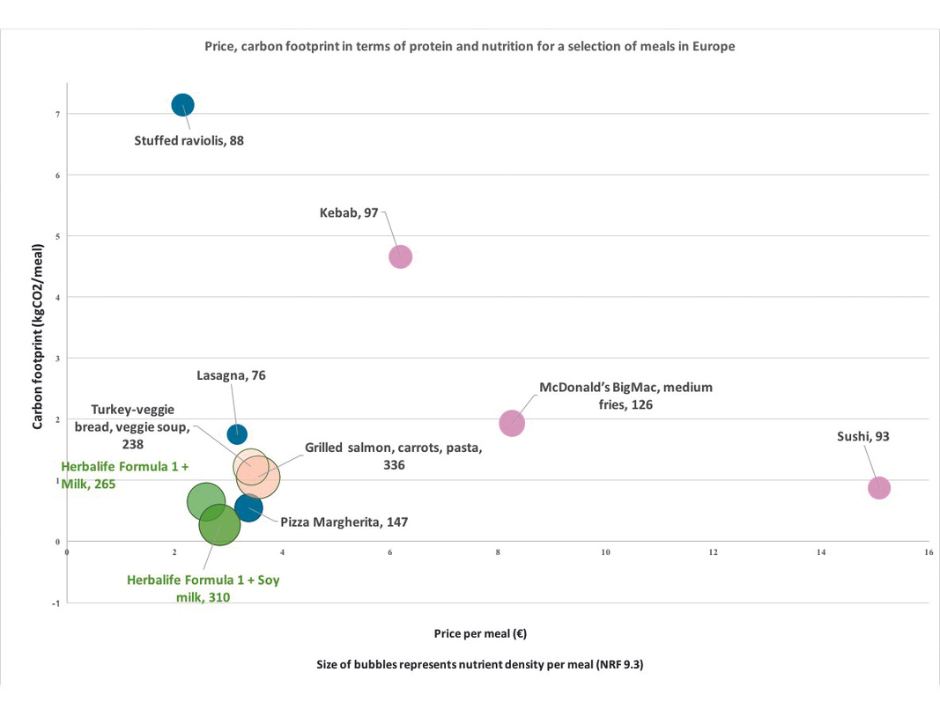There is no denying that our generation is living through a transformative era. Coping with increased global conflict and a pandemic is challenging enough, but we are also living through economic inflation, a worldwide non-communicable disease health epidemic and serious environmental crises that could have unprecedented effects on our societies. It is imperative we ensure the long-term viability of our food systems.
With this in mind, leading nutrition company Herbalife, Altermind, and expert researchers from various fields conducted a study on the interlinked relationship between the health, price and sustainability of our food, referred to as an “impossible trinity”. At first glance, it seems unworkable to ensure a balance between these three aspects. However, the report shows that achieving a more optimised equilibrium is possible – and it’s imperative that decision makers, consumers, and industry stakeholders move towards this goal.
Affordability
Almost everyone in Europe will have noticed drastic price changes whenever they go shopping. As the study points out, between March 2022 and March 2023 alone, food price increases reached 15.5 per cent. Prices have been driven up by ongoing conflicts and subsequent disruptions to global markets. It’s not just products; prices throughout supply chains, including electricity, gas and fertilizers, have risen, exacerbating an already deteriorating situation with the global climate emergency.
Sustainability
With food systems representing around 32 per cent of greenhouse gas emissions (as of 2020), it is clear we urgently need to rethink the sustainability of our current eating habits. According to the data, the biggest user of land and water in the agricultural sector is livestock, with three quarters of global agriculture land dedicated to raising animals and 63 per cent of arable land used for animal feed.
With over half of the European population currently overweight, this is a problem of immense proportions
Health
Last but not least, our health has been collectively and increasingly deteriorating. Obesity affects over a billion people worldwide. Its effects not only include reduced productivity and mounting healthcare costs, but the premature death of 5 million people per year. With over half of the European population currently overweight, this is a problem of immense proportions and is directly linked to our food systems. Meanwhile, too little attention is paid to the concept of nutrient density, or how much nutrition we obtain in a serving. For healthier food systems, there needs to be a shift towards promoting nutritional adequacy, focusing on nutrient density rather than types of processing.

The impossible trinity made possible
Foods of the future need to be healthier and less impactful on our environments. At the same time, we cannot ignore the fact that taste, cost and convenience are primary factors influencing the choices of consumers when selecting what they eat. Reconciling these elements is achievable and, as the Altermind study shows, the lowest hanging fruit is incentivising a shift towards plant-based products. At Herbalife, we utilise plant proteins that need less land and water than livestock and create science-backed products designed to provide consumers with the essential nutrients they need. All this, at an affordable price. To maximise efficiency and contribute to sustainability efforts, we redirect food product waste as animal feed.
The future
If we want to ensure a better future for the next generation, we must create more resilient, efficient, and sustainable food systems. This must be in done in accordance with making food healthy, affordable and tasty. Individual companies can and must help in this transition, but a sector-wide effort is needed to make it a reality. The European Union can do much to overcome the “impossible trinity”, from supporting R&D via programs like Horizon Europe to better integrating drivers of consumer behavior in policy design and reconsidering the way subsidy and incentive mechanisms function. Lastly, a concept switch to “nutritional value for money” is necessary to raise awareness on nutrient density among consumers. The next mandate of the European institutions presents an opportunity to deepen co-operation in making our food systems function better.
For more information and to get a copy of the study, please contact Amelie Baracat-Empereur at amelieempereur@herbalife.com or Miroslaw Gajewski at miroslawgajewski@herbalife.com
Sign up to The Parliament's weekly newsletter
Every Friday our editorial team goes behind the headlines to offer insight and analysis on the key stories driving the EU agenda. Subscribe for free here.